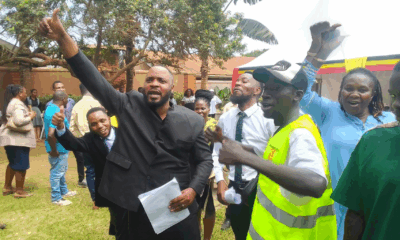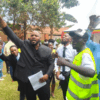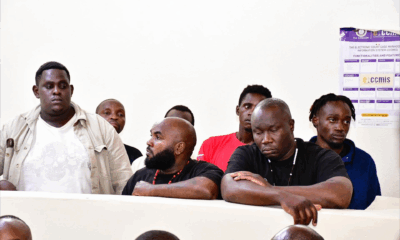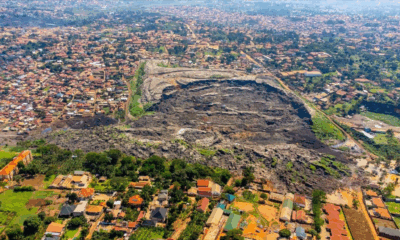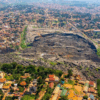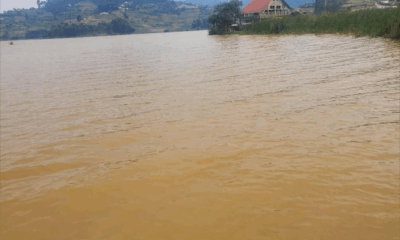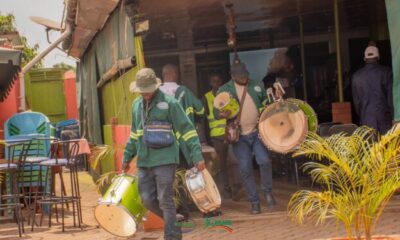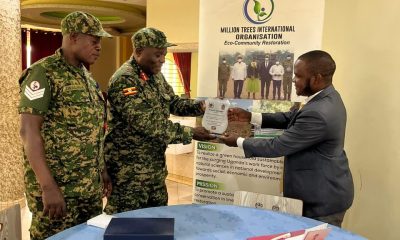Environment
Nakivubo Drainage Saga: Development or Dangerous Encroachment?
The sealing off of the Nakivubo drainage system by city tycoon Hamis Kiggundu, popularly known as Ham, has ignited a heated public debate, with critics warning of looming environmental and social consequences while supporters hail it as a bold step toward modernisation.
For weeks, Ugandans have taken to social media to question the decision by Ham Enterprises to cordon off the drainage channel that snakes through the bustling Kisekka and Owino Market areas. The development has displaced vendors and disrupted business, sparking fears of flooding in one of Kampala’s most flood-prone corridors.
At the forefront of the resistance is Kampala Lord Mayor, Erias Lukwago, who accuses the tycoon of “fraudulently appropriating public property.”
“Public property (Nakivubo Drainage channel) fraudulently appropriated by unscrupulous individuals (Ham Enterprises) and you hear some charlatans hyping it as development!!!. Ooh Uganda May God Uphold Thee…..” Lukwago lamented in a sharp post on X (formerly Twitter).
Speaking at City Hall on Monday, the Mayor went further, calling the project illegal and fraudulent, arguing that it lacks approval from Kampala Capital City Authority (KCCA) and clearance from the National Environment Management Authority (NEMA). “Hamis Kiggundu does not have a permit from NEMA to carry out any activity on this channel,” Lukwago stated.
He urged the central government to intervene, warning that Kampala’s fragile drainage system could collapse under such unauthorized encroachment.
Hamis Kiggundu, however, maintains that the project is legitimate. According to him, the Nakivubo redevelopment falls under a broader smart drainage system upgrade, backed at the highest political level. “The project has received approval from President Museveni himself,” Ham’s team insists.
This claim points to the complex tug-of-war between central government-backed private sector projects and city authorities’ regulatory mandate.
The Vendors’ Silent Struggle
Perhaps the most overlooked voices in this dispute are the hundreds of roadside vendors from Owino Market who have been displaced by the construction. Police patrols were deployed around the sealed-off site last week to prevent potential protests, underscoring the project’s volatile social impact.
For these vendors, Nakivubo has always been more than a drainage system—it is a lifeline where thousands eke out a living. Their displacement without alternative arrangements deepens the tension between development and livelihoods.
The Nakivubo saga mirrors a recurring dilemma in Kampala’s urban development story: where does public interest end and private capital begin?
While developers often tout modernisation, beautification, and job creation, critics warn that opaque approvals, disregard for environmental safeguards, and sidelining of vulnerable communities frequently mar such projects.
For Kampala residents already grappling with perennial flooding, any tampering with the Nakivubo channel is not just a technical issue but a matter of survival.
What Lies Ahead?
The clash now pits Lukwago and city authorities against a tycoon with direct presidential backing—a battle likely to shape Kampala’s development trajectory for years.
If halted, the project may spark questions about bureaucratic inefficiency and investor hostility. If allowed to proceed unchecked, it risks setting a precedent for privatisation of critical public infrastructure without due oversight.
At the heart of the Nakivubo drainage saga is a simple but profound question:
Is Kampala’s development being built for the people, or at their expense?
Comments






